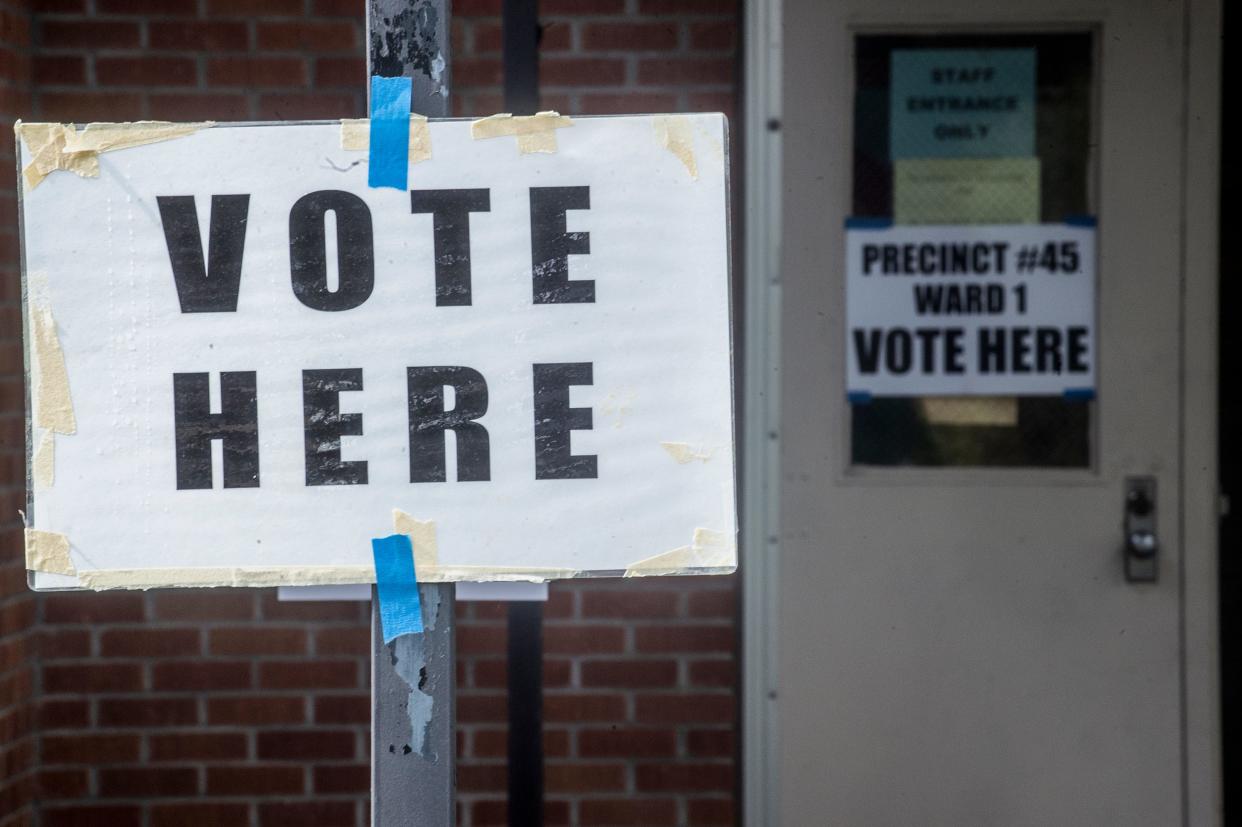Mississippi's felon disenfranchisement laws can remain in place, U.S. Appeals Court rules

The state of Mississippi can continue denying people previously convicted of certain felonies the right to vote, according to a new ruling by the U.S. 5th Circuit Court of Appeals.
On Thursday, the court's majority overthrew a ruling issued by the lower Circuit Court, which states Mississippi's disenfranchisement law was unconstitutional because it inflicted cruel and unusual punishment.
The 5th Circuit Court of Appeals panel found that disenfranchisement is not a punishment imposed on people for life, but a regulatory function of the state to protect the public, and a function that is entirely within its right to flex.
The majority also said that disenfranchisement isn't up to snuff with what it interprets as cruel and unusual punishment, noting acts such as hanging, burning at the stake and beheading, to name a few.
"The disenfranchisement of felons has long been regarded as serving a nonpenal, regulatory purpose," the majority of the panel wrote in the Thursday ruling. "For instance, in 1898, the Supreme Court described felon disenfranchisement laws as a type of measure designed to protect the public, and not punish for past offenses."
The dissenting opinion on the case came from six judges, written by Judge James L. Dennis, all stating a lifetime voting ban is unconstitutional.
"Voting is the lifeblood of our democracy and the deprivation of the right to vote saps citizens of the ability to have a say in how and by whom they are governed," Dennis wrote. "Permanent denial of the franchise, then, is an exceptionally severe penalty, constituting nothing short of the denial of the democratic core of American citizenship…Denying released offenders the right to vote takes away their full dignity as citizens, separates them from the rest of their community, and reduces them to “other” status. I respectfully dissent."
The original lawsuit was filed by the Southern Poverty Law Center, Simpson Thacher and Bartlett LLP and others on behalf of state citizens who lost their voting rights. The office of Attorney General Lynn Fitch opposed the lawsuit representing the case.
In 2023, a court upheld the center's arguments and deemed the laws unconstitutional. At the time of its codification into law in 1890, state lawmakers openly touted its purpose to keep Black Mississippians from accessing the poles.
The U.S. Supreme Court has ruled in past cases that a lifetime ban on voting for people convicted of certain felonies was not unconstitutional. However, a minority of the 5th Circuit Court said the Supreme Court in past instances changed its mind and found certain punishments to be cruel and unusual.
Mississippi is one of only two states that ban first time felony offenders from voting for life.
More about voting rights legislation Voting bill, which would have helped non-violent felons, dies in MS Senate
What will happen to disenfranchisement in Mississippi now?
As for the more than 40,000 people in the state who currently are disenfranchised, there are but few paths left to take.
The Southern Poverty Law Center and others' attorneys can appeal the case and continue with the U.S. Supreme Court.
As for any other action, the court majority wrote that if Mississippians want to remove disenfranchisement from law, they will have to petition the Mississippi Legislature to do so. Individuals can also ask lawmakers to file legislation to return their voting rights, but it must be approved by both the Senate and House and pass by the governor's desk.
Who had their rights returned in 2024? Mississippi Legislature approves 21 suffrage bills in 2024 session
More disenfranchisement stories 'When you don't have the right to vote, you are a nobody,' felon tells Mississippi lawmakers
"Go and convince the State legislatures," Judge Edith Jones wrote. "Do the hard work of persuading your fellow citizens that the law should change."
In a joint statement from several civil and voting rights advocacy groups, including the League of Women Voters for Mississippi, Mississippi Center for Justice, One Voice, Mississippi Votes, Mississippi State Conference of the NAACP, Black Voters Matter and Mississippi Poor People’s Campaign, they call the court's majority opinion a failure to democracy.
“Retaining this ban as part of Mississippi’s constitution is an affront to our democracy," the statement reads. "We are disappointed to see the court allow the state to continue taking the right to vote away from Mississippians for life under a state constitutional provision that was specifically designed to disenfranchise Black men and that, to this day, disproportionately impacts Black Mississippians."
Grant McLaughlin covers state government for the Clarion Ledger. He can be reached at gmclaughlin@gannett.com or 972-571-2335.
This article originally appeared on Mississippi Clarion Ledger: Mississippi can keep voting rights ban for certain ex-felons, court rules

